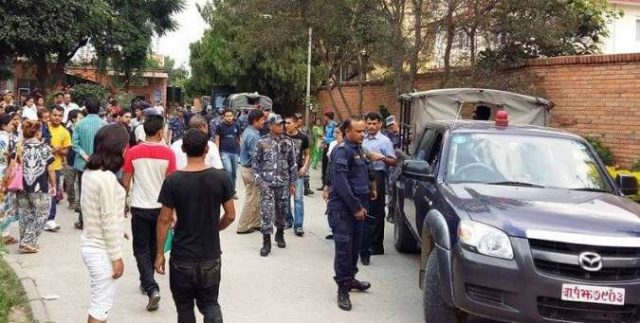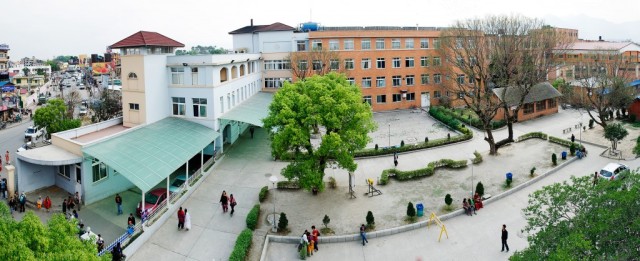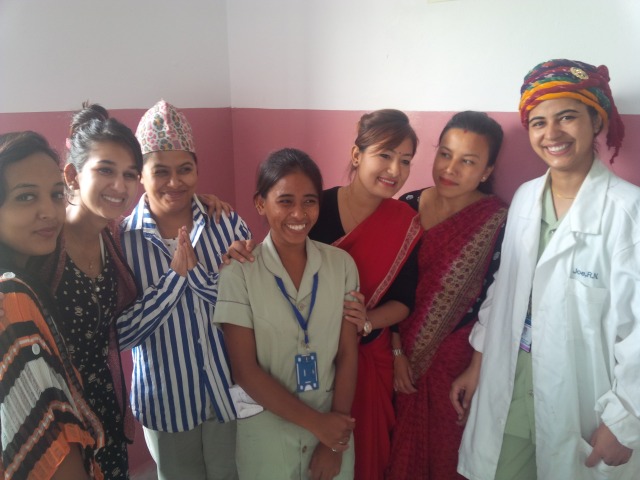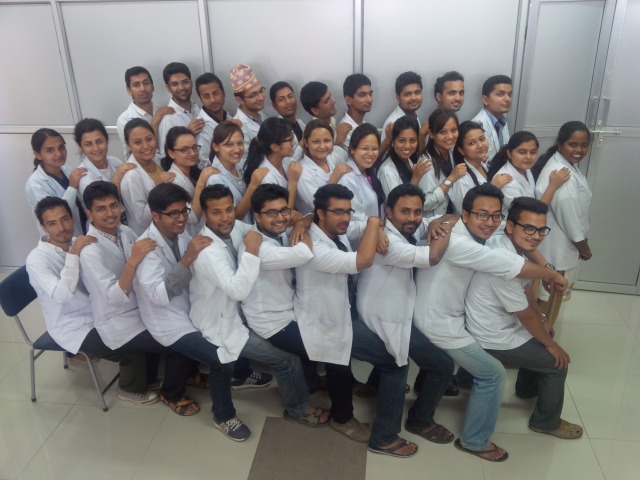ATTENTION: the text in color, is “hyperlinks” – click on each colored word and it will lead you to another place that provides background.
News from Patan
Two doctors got beaten by angry relatives of a patient, at Patan Hospital. here is the link http://setopati.net/society/9168/

from http://setopati.net/society/9168/ Whenever anything happens in Nepal, a crowd gathers. The two guys who beat the doctors were arrested. This is progress!
The dispute was about who should pay for an ambulance at time of discharge.
A nurse at the hospital told Setopati that Silwal was asked by the doctors to arrange for ambulance after his ward, who was admitted at the hospital for the treatment of jaundice, was discharged. However, Silwal entered an argument with the doctors saying that it was the duty of hospital and not patient’s relatives to arrange for ambulance. The nurse said that Silwal was on his police uniform, and changed his clothes before beating the doctors. Lalitpur Police has arrested the alleged with the help of the relatives of other patients in the hospital. The brother-in-law of the policeman, who was with the accused, was also held by the police. Meanwhile, the patients admitted at the hospital have been affected after the doctors at the hospital came out to protest the incident and demanded action against Silwal. – See more at: http://setopati.net/society/9168/#sthash.rpZKTCgz.dpuf
The doctors are not to blame. This is all too common at hospitals in Nepal.

Patan Hospital is well-respected and hosts the Patan Academy of Health Sciences, a medical school. Due to it’s previous affiliation with UMN, PAHS still enjoys a higher number of videshi exchange students than most other hospitals in Nepal. Patan Hospital is not immune from angry “patient parties” and neither is any place in the whole country.
Situational Awareness is the key term.
It means, it’s not enough to treat the patient’s illness. You must also address the mental state of the family.
Every young doctor worries about this.
CCNEPal has worked on this issue. go to https://joeniemczura.wordpress.com/2015/07/21/campaign-to-teach-situational-awareness-to-mbbs-docs-in-nepal-jul-21-2015/ and read about the training to prepare nurses and doctors to protect themselves.

CCNEPal uses role play to teach nurses and doctors about situational awareness. These are the actors from the first session at Crimson Hospital in BTWL, May 2015
What every nurse and doctor can do:
- examine your workplace to see that it is secure.
- learn to identify distraught family members whose anxiety is escalating
- learn de-escalation techniques.
- work with the hospital chowkidars to make sure they are doing their job, and that they know what it is.
- view the YouTube videos from CCNEPal.
- especially this video, in Nepali Language!
- ask the Ministry of Health and Populations to add “violence prevention training” to the national health plan.
- make sure you know how to contact the police.
- if you are an MBBS student, ask your medical college to sponsor CCNEPal’s training so you can be prepared for this scenario.
- In USA lately, whenever violence happens, the bystanders now start recording on their cellphone. Why not use this in Nepal?
- always publicize the incidents, so we can get an accurate idea of how frequent and widespread this problem is.
- CCNEPal is presently dormant while the principal faculty is back in USA. send an email to joeniemczura@gmail.com to request future training.

MBBS interns at CMC in Bharatpur. These young docs were willing and enthusiastic. A bright spot for Nepal’s future. In the recent exams, the aggregate scores for CMC were among the highest in the country.
Note about CCNEPal:
CCNEPal was in Nepal from 2014-2015 to teach critical care skills including “patient party counseling” to nurses and doctors. We have taught this at four medical colleges, as well as other locations. CCNEPal was privately funded for that period of time. The funding ran out and CCNEPal returned to USA. We have a proposal to return and set up a system for all MBBS programs to teach these skills, but we await further funding. CCNEPal has worked with a company in USA that specializes in NGO funding, and they tell us that if a government agency in Nepal were to add this to the health priorities and request an international group to fund it, we could then continue. If you are an MBBS student, please ask your medical college to join this campaign. Ask them to send me an email – joeniemczura@gmail.com Share this message.
Update: here is a link to a popular radio program in USA, about Nepal. http://www.npr.org/sections/goatsandsoda/2015/09/10/439195188/i-am-in-nepal-now-says-new-tourist-campaign-only-nepal-is-in-chaos Ask yourself: If you were a USA tourist, would you visit Nepal?
Finally, my novel of Nepal includes a scene where the doctors confront this exact issue. Buy it in Thamel.

Pingback: A simple idea for the Nepal Government to seize the initiative in Terai and silence the opposition | The Sacrament of the Goddess – a Novel of Nepal